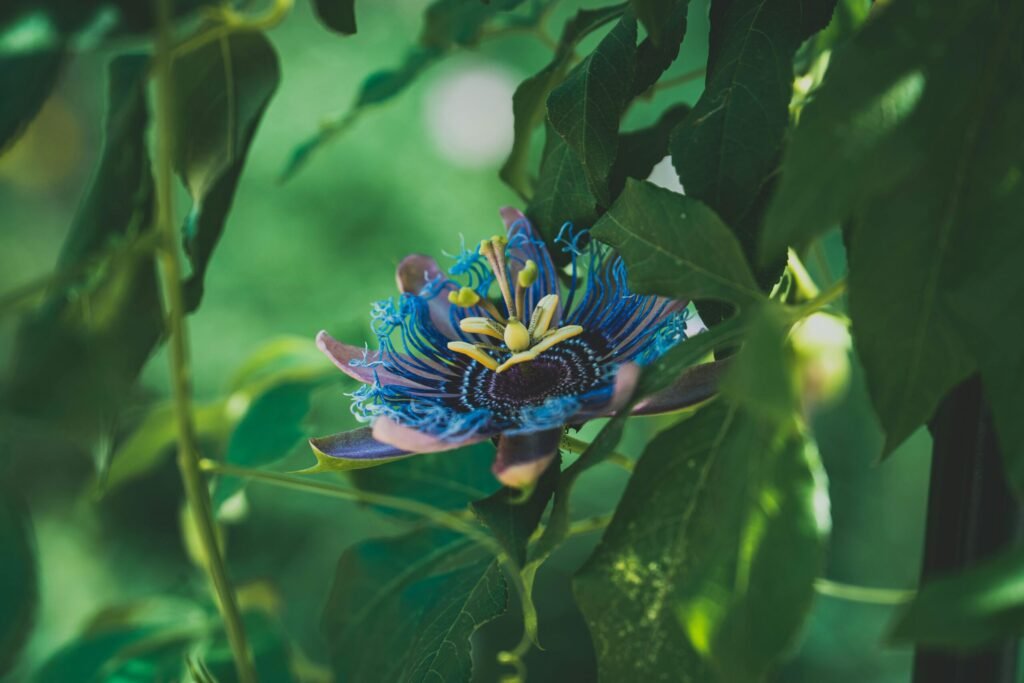Are you struggling to get the restful sleep you deserve? If so, you’re not alone. Millions of people worldwide suffer from sleep disturbances, impacting their energy levels, mood, and overall quality of life. In this blog post, we’ll explore our top five sleep supplements to ensure you get a good night’s sleep.
Montmorency Tart Cherry (Prunus cerasus)
Montmorency tart cherry is a variety of cherry native to Europe and Asia. Named after the Montmorency region in France, where it was first cultivated over 500 years ago, this tart cherry has a long history of medicinal and culinary use dating back centuries.
Medicinal Benefits: Rich in vitamins and minerals, including vitamin C, potassium, and fiber, Montmorency tart cherry has gained attention for its numerous health benefits, particularly in the realm of sleep, inflammation as well as digestive issues. Montmorency cherries are a natural source of melatonin, a hormone that regulates the sleep-wake cycle. Consuming tart cherry juice or extract has been shown in studies to increase melatonin levels in the body, leading to improvements in sleep duration and quality.
Nutritional Profile: Montmorency tart cherries are also rich in antioxidants, particularly anthocyanins, which are responsible for their deep red color. Anthocyanins have anti-inflammatory properties and may help reduce oxidative stress in the body, contributing to overall health and well-being.

Ashwagandha (Indian Ginseng)
Ashwagandha, an ancient herb used in Ayurvedic medicine, is renowned for its adaptogenic properties, meaning it helps the body adapt to stressors. By reducing stress and anxiety levels, Ashwagandha can help calm the mind and promote relaxation, leading to better sleep. Research suggests that Ashwagandha may also improve sleep quality, including sleep latency (the time it takes to fall asleep) and sleep duration.
GABAergic Activity: GABA (gamma-aminobutyric acid) is a neurotransmitter known for its role in promoting relaxation and sleep. Ashwagandha has been shown to enhance GABAergic activity in the brain, increasing GABA receptor binding and potentially enhancing the inhibitory effects of GABA, leading to feelings of relaxation and sedation.

Passion Flower (Passiflora incarnata)
Passion flower is a flowering vine native to the southeastern United States, Central, and South America. It has a long history of traditional use as a natural remedy for various ailments, including insomnia and anxiety. This beautiful flowering plant contains compounds that exert a calming effect on the nervous system, making it easier to fall asleep and stay asleep throughout the night. Passion flower may also help alleviate restless leg syndrome, a common sleep disorder characterized by uncomfortable sensations in the legs.
Medicinal Uses: Passion flower was traditionally used by indigenous cultures as a mild sedative and sleep aid. The leaves, flowers, and stems of the plant were brewed into teas or tinctures and consumed to promote relaxation and induce sleep. Passion flower was also used to treat anxiety, nervousness, and restlessness, making it a valuable remedy for promoting mental well-being and emotional balance.
Effects on Sleep: Passion flower exerts its sleep-promoting effects through several mechanisms. Passion flower contains compounds that interact with gamma-aminobutyric acid (GABA) receptors in the brain, similar to Ashwagandha. GABA promotes relaxation and reduces neuronal excitability, leading to feelings of calmness and sedation. By enhancing GABAergic activity, passion flower can help quiet the mind and facilitate sleep onset.

German Chamomile (Matricaria chamomilla)
German chamomile is a flowering plant belonging to the sunflower family. It is native to Europe and Western Asia but has since been introduced to various regions around the world. German chamomile has a long history of medicinal use, dating back thousands of years, and is prized for its calming and soothing properties.
Historical Significance: German chamomile has been used for centuries in traditional medicine systems, including ancient Egyptian, Greek, and Roman civilizations. The name “chamomile” is derived from the Greek words “chamai,” meaning “on the ground,” and “melon,” meaning “apple,” referring to its low-growing habit and apple-like aroma.
Effects on Sleep: Chamomile contains apigenin, a flavonoid that binds to certain receptors in the brain, promoting relaxation and sleepiness, and reducing anxiety and inflammation.

L-Theanine:
L-Theanine is an amino acid found primarily in tea leaves, particularly in green tea. First discovered and isolated from tea leaves in 1949 by Japanese scientists, they identified L-theanine as the predominant amino acid responsible for the unique flavour profile of green tea.
Known for its calming effects, L-theanine can help reduce stress and anxiety levels, making it easier to unwind and fall asleep. By increasing levels of neurotransmitters such as GABA and serotonin, L-theanine promotes feelings of relaxation and tranquility without causing drowsiness.
Medicinal Uses: Numerous studies have explored the health effects of L-theanine, including its potential to reduce stress and anxiety, improve cognitive function, and promote relaxation. L-Theanine supplements have gained popularity as a natural remedy for various conditions, including insomnia, attention deficit hyperactivity disorder (ADHD), and mood disorders.
Dreamscape:
Incorporating these natural supplements into your bedtime routine may help you achieve the restorative sleep you’ve been longing for. All of these natural ingredients, and more, can be found in Dreamscape – our one and only sleep supplement. Additionally, remember that supplements are not a substitute for healthy sleep habits, such as maintaining a consistent sleep schedule, creating a relaxing bedtime routine, and optimising your sleep environment. Sweet dreams!

“Sweet dreams are made of this”

